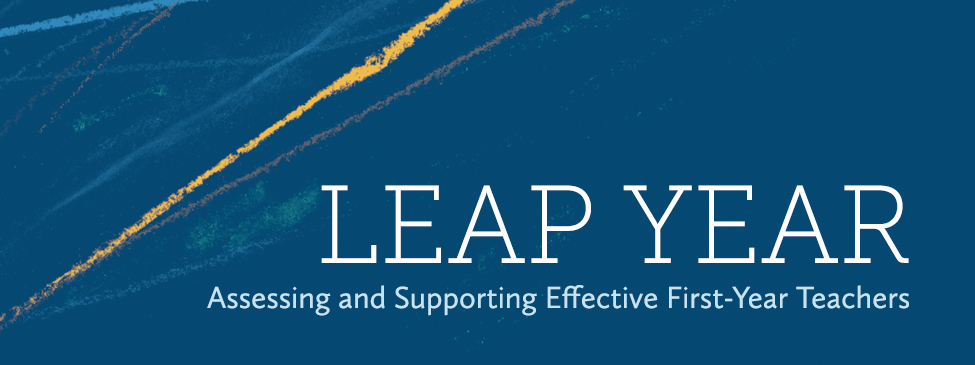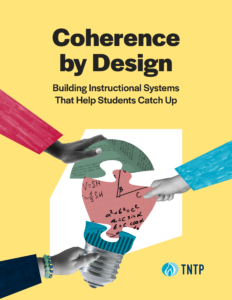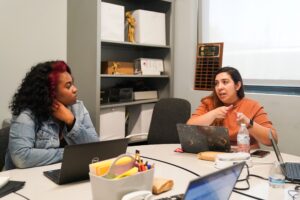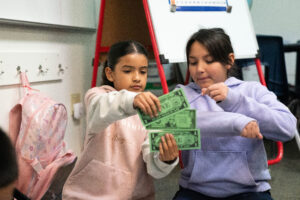If you know anything about TNTP, you know we don’t think teachers should be treated like widgets. They aren’t interchangeable. They are diverse professionals with their own strengths and weaknesses who ought to be addressed appropriately. After we published our paper making this argument in 2009, we realized that we were guilty of treating our own teachers like widgets sometimes, too.
We thought we were doing the best job we could. We recruited and trained thousands of great candidates each year to become teachers in low-income communities. But once they were in the classroom, we left it largely up to school districts to provide support, good school leaders and a sound decision on things like annual renewals and eventually, tenure. In a culture that made few distinctions among teachers’ relative skills, this meant that just about all of the teachers were permitted to continue—regardless of how much they were growing as practitioners. The first year of a teacher’s career tended to be viewed as a warm-up lap, not indicative of how that teacher might perform in the future. Research tells us this is simply incorrect.
We decided to do something different. Over the last few years, we have radically evolved the way we train and evaluate new teachers, becoming one of the first organizations to certify them based mainly on their actual performance in the classroom. We’ve learned a lot, and today we’re sharing what we’ve learned in our latest report, Leap Year: Assessing and Supporting Effective First-Year Teachers.
Leap Year explores a simple idea: The first year is the most important year of a teacher’s career, and we need to treat it that way. A teacher’s first year is far from a warm-up lap. We should instead see it as a critical window of opportunity to help teachers develop essential skills and make a thoughtful decision about whether they can make a successful career teaching.
That’s what we’ve been doing in 15 programs across the country with our Assessment of Classroom Effectiveness (ACE), a multiple-measures evaluation system designed specifically to ensure that first-year teachers in our Teaching Fellows and TNTP Academy programs meet a high standard of effectiveness.
Leap Year explains how we developed ACE and what its first year taught us about evaluating and supporting the growth of approximately 1,000 new teachers. Here’s some of what we found:
- New teachers perform at different levels and improve at different rates. Contrary to conventional wisdom, first-year teacher performance is not uniform. Some start strong, while others struggle. Many improve as they gain experience, but some do not.
- Teachers’ initial performance predicts their future performance. In particular, teachers who struggled from the start rarely came close to becoming effective, even in their second year.
- A few core skills appear to be important to first-year teachers’ success. We found that first-year teachers who are purposeful, responsive and focused on student understanding develop more quickly.
We see several possible ramifications for policy. In the report we make the following recommendations:
- Certification should be linked to a teacher’s actual performance in the classroom, not just coursework and seat time. Nothing better indicates a teacher’s future success than his or her first-year performance.
- Teacher preparation programs should stop certifying teachers who are unlikely to become effective, which only does a disservice to those teachers and their students.
- Schools need to help first-year teachers focus on the skills that matter most for their future success, providing regular useful feedback along the way.
Please give the report a read and tell us what you think. Later this week, we’ll share more about the backstory behind ACE with a post from Karolyn Belcher, who currently oversees our teacher training programs.








